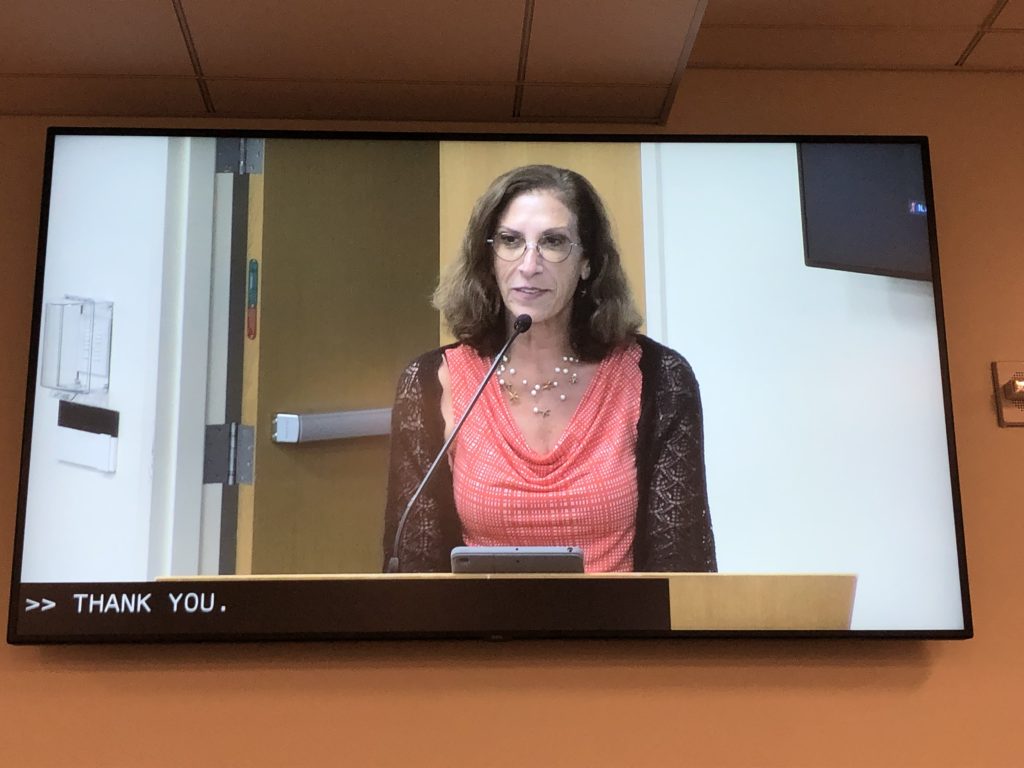By: Lisa Daglian July 25, 2022
Good afternoon, I’m Lisa Daglian Executive Director of the Permanent Citizens Advisory Committee to the MTA, PCAC.
The ominous weather is an appropriate backdrop for this discussion of the MTA’s future financial situation. Lower than expected ridership return, leading to lower-than-anticipated farebox revenue, combined with effects of the current economic situation and appropriate actions the MTA will take, means that federal COVID relief funding will run out faster than expected. Soon — very soon — we’ll be looking at the latest fiscal cliff, or tsunami, if you prefer, with the MTA’s only real options to raise fares, cut service, or layoff workforce. None of those are OK. It’s time to treat transit as the essential service it is. That means working together and with our elected officials to find new, dedicated operating revenue streams, and we need to start immediately. Lurching from crisis to crisis year after year is exhausting, for all of us, and we need stability in order to get riders back on board, now and into the future.
In addition to identifying new funding, it’s critical to identify operating efficiencies, but we hope you’ll learn from the past. Be cautious, don’t implement things like a blanket hiring freeze that will affect service and staffing levels for years to come. At this point, lessons learned from transformation should still be fresh — and some likely still sting — so please don’t repeat the same errors.
Millions of riders rely on subways, buses, LIRR and Metro-North, and we need a strong and viable MTA that’s financially stable. The world has changed; we’re looking at a new paradigm of the way people work and travel; it’s time for a new funding paradigm too. More frequent and reliable service, which survey says customers want, requires funding. We’re committed to working with you on this critical issue. We launched a successful campaign to get congestion pricing passed and we can do the same to see new, dedicated operating revenue become reality.
On the topic of congestion pricing, we’re hoping for good news soon and look forward to next steps in the near future. A strong and resilient transit system is good for riders, good for the region, good for the environment, good for the economy, and essential for equity. Thank you.
